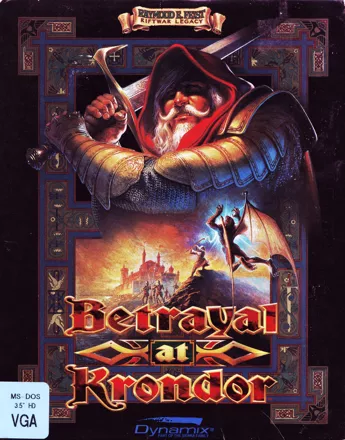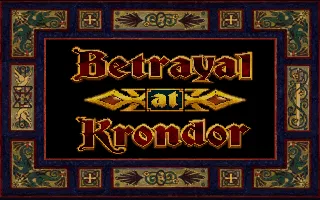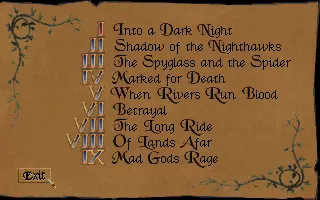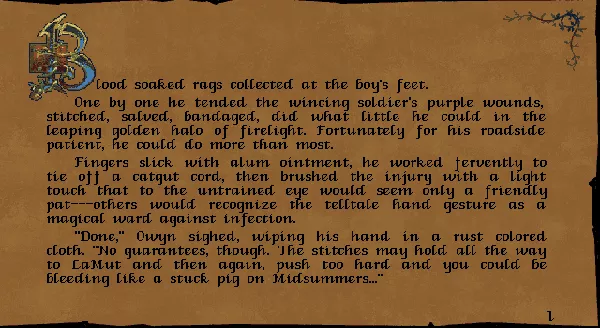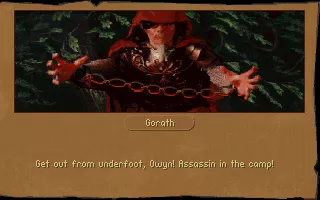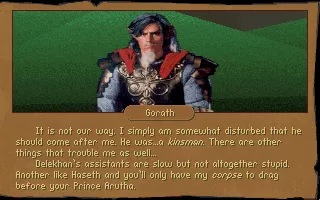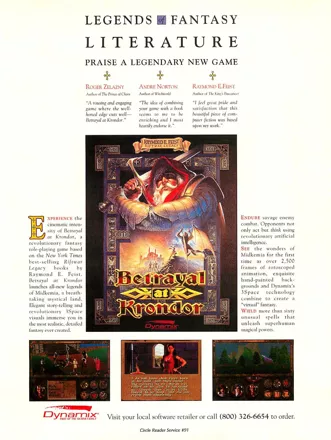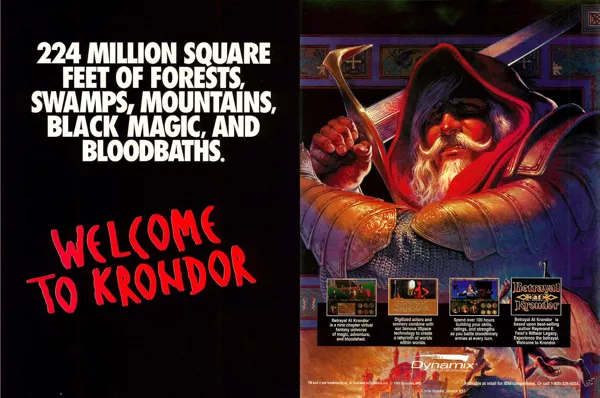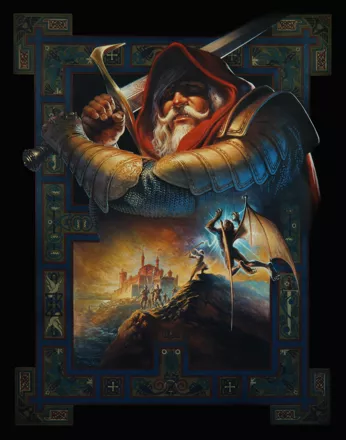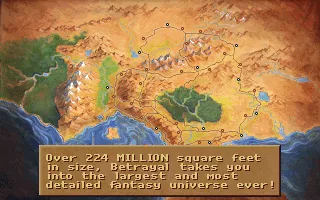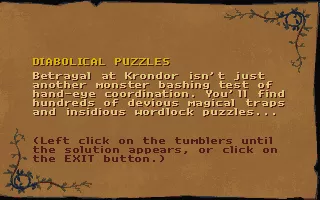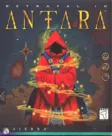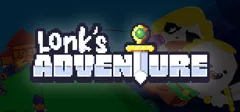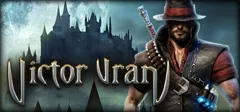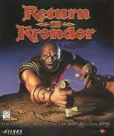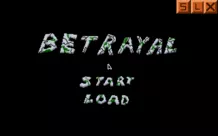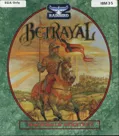Betrayal at Krondor
Description official descriptions
Based on Raymond E. Feist's Riftwar saga (and co-written by Feist himself), Betrayal at Krondor is a medieval fantasy-themed role-playing game set in the Riftwar universe.
The story begins as Gorath, a moredhel (dark elf) renegade, who intended to warn the people of Krondor of the upcoming moredhel invasion, is attacked by an assassin. Locklear, a nobleman who serves the crown of Krondor, and a young magician named Owyn decide to accompany Gorath to Krondor, where they'll have to think of a plan to stop the moredhel leader Delekhan.
The game's story is divided into nine chapters. Each chapter has a goal to achieve before moving on to the next one, but the player is given considerable freedom to explore the vast world of the game and undertake side quests. Gorath, Locklear, and Owyn are the first party of characters the player controls; however, characters may leave and others may join the party later, as dictated by the events of the story.
Exploration in Betrayal at Krondor takes place in a 3D world viewed from first-person perspective. Towns, however, are presented as a series of still screens representing locations (temple, tavern, inn, etc.). Combat takes place on separate grid-based screens. The player moves the characters on these screens in a turn-based fashion, attacking physically, defending, and casting spells.
Only two character classes are present in the game: fighters and magicians. Fighters use swords or crossbows (for long-ranged attacks); magicians can fight with staves, or cast spells. Characters have four attributes: health, strength, speed, and stamina. The latter is depleted when a character uses weapons or casts magic. The role-playing system of the game relies on skills. Each character has a set of skills, ranging from weapon proficiencies to abilities such as bartering or stealth. Skills improve after continuous usage. The player can "emphasize" a skill in order to make it improve faster.
Spellings
- קרונדור - Hebrew spelling
- 叛變克朗多 - Chinese spelling (traditional)
Groups +
Screenshots
Promos
Videos
Add Trailer or Gameplay Video +1 point
See any errors or missing info for this game?
You can submit a correction, contribute trivia, add to a game group, add a related site or alternate title.
Credits (DOS version)
153 People (109 developers, 44 thanks) · View all
| Design | |
| Lead Programming | |
| Programming | |
| Graphics / 3D Programming | |
| Level / Scenario Design | |
| Graphics / Artwork | |
| Music | |
| Art Director | |
| Cover Art | |
| Documentation | |
| Director | |
| Writing / Dialogue / Story | |
| Playtesting | |
| [ full credits ] | |
Reviews
Critics
Average score: 84% (based on 16 ratings)
Players
Average score: 3.9 out of 5 (based on 102 ratings with 12 reviews)
"Blood soaked rags collected at the boy's feet..."
The Good
Reviewing this game is a challenge for me, as it is one of those games that completely took me by storm while at a young age. For that reason, I thought it might be difficult to give it a fair review, and thus decided to do yet another play-through with a critical glance.
I remember my first experience with this game, sitting with friends on a rainy autumn afternoon in '93 or '94, I can still remember our screams of joy and awe as we walked into a shop in Questor's View and first beheld the Keshian Tapir. I brought the game home with me, and played it for hours and hours and days and (especially) nights.
The thing that most made this such a unique experience for me was the amazing freedom you had to run around and explore. It felt like a proper dice-and-paper-and-gamemaster-RPG. This freedom I had never experienced before in a game, and coupled with an enthralling main story, it created a hold over me very few games before or since has been able to do.
There are an incredible number of sub-quests, lots of areas of the beaten track to explore; lots of weapons to try out and aspire to get your hands on (like the aforementioned Tapir).
The view of the game, the combat system and the character development are all adequate. The graphics are good enough, but doesn't matter that much to me anyway. The music is absolutely fantastic, and creates a good atmosphere.
The world is based on the books of Raymond E. Feist (in my case, the game brought me to the books, rather than the other way around), and is a rich fantasy setting that feels as much as a second home as does Hyrule and Middle Earth.
A special mention must be made of the word-chests. These are chests that require you to solve a riddle in order to get at the treasure inside. In the dark pre-www-days of the nineties, I remember sitting into the early mornings of many a school night, my dictionary in my lap, trying to solve that riddle because you HAD to know what was in the chest.
The Bad
There are of course a few drawbacks:
-A quest log or similar would be very nice. Often, people will not repeat information they have already given you, so if you forget some piece of information, tough. This is mainly concerning the sub quests. When it comes to the main quest though, the game is a bit more helpful.
-Sometimes the perspective makes it very difficult or impossible to access certain objects when two or more objects overlap. After combat, it is sometimes necessary to run around the fallen enemy in circles in order to get the correct perspective that allows you to search all bodies. Other times, if an enemy is dead within a corn-field, attempts to search the body will be interpreted as attempts to harvest the corn, with a resulting "the corn is not ripe and cannot be eaten".
-Sometimes the outcome of a combat is determined by the choices made by the AI. If, for example, you encounter several spellcasters in an ambush, they may have the opportunity to incapacitate your entire party before you are able to act. When this happens, you have no other option than to load the game and try over until the enemy for some reason decides to cast different types of spells. This feels a bit unsatisfactory: you know that the enemy can destroy you if he wants, it feels sort of as if he "let's you win" when you finally succeed.
-The "rest" button in combat has a somewhat strange function when compared to the "camp" button on the map. Resting for a round in combat will restore a couple of hit points, while recovering on the map takes hours of camping and the consumption of rations.
-There is some friction in the flavour between the two great aspects of the game: freedom and story. In the first chapter for example, you are told by the leader of your company to rush to Krondor. But the freedom of the game allows you to run around and doing all sorts of things, like for example spending a fortnight learning to play the lute. The time you spend on sub-quests has no bearing on the main quest, so a bit of "double-think" is required on the part of the player.
-While there is a great array of spells available, in reality there are not that many that are useful, and only a handful will actually be used in most situations. A more even power-level between spells would have made combat more interesting as it would not be so obvious what spell to use.
-The player could have better control of movement in combat. You can only choose the enemy you wish to attack for example, not the square you wish to attack him from. This means that you cannot position yourself tactically between two enemies in order to prevent them from using spells or missile weapons for example.
-Patrus. This magician, joining your party in chapter 5(?), is so incredibly weak you'd actually be better off without him. He is so slow that he will never be able to move until an enemy has closed him down, making it impossible for him to cast spells. His combat stats are also so poor that he often gets himself injured or killed, forcing you to spend time and money healing him. His stealth is also so poor that it is important to ambush enemies and get the initiative. It sort of fits with him being an old man, but it is very annoying. It also feels strange from a story-perspective: Why on earth would the other members of the party go into combat with this old man? Just leave him safe behind a tree or something and call upon him when you need him to translate runes.
The Bottom Line
Despite the few drawbacks (and remember that this time I played actively looking for drawbacks, and that the game is an early example of its kind), this is an absolutely amazing game.
The world is great both in terms of size and quality, the story is good, the freedom to explore fantastic.
It will be on the top 10 list of games, all-time all-formats. I return to the game time and time again, and have done for twenty(!) years. If you enjoy adventuring and exploring in a rich world with a captivating story, this is for you. And be strong: try and solve the puzzle chests without cheating!
DOS · by Dr_Bab (7) · 2013
The Good
Set in fantasy novelist Raymond Feist’s world of Midkemia, Betrayal at Krondor (BaK) received great acclaim from the press. The game attempts to blend together storytelling, puzzles, and roleplaying into a cohesive whole.
Sales of the game were slow upon its initial release, but then picked up when the game was released on the then-new CDROM format. The game’s use of digitized photos of “actors” for the characters’ faces was innovative (if a bit cheesy) and even influential, given that Might and Magic VI would use the same technique a few years later. The musical score is appropriately sweeping and adds to the whole RPG-meets-Renaissance Fair atmosphere.
The Bad
Unfortunately, the graphic novel aspect of the game conflicts with the role-playing element, and thus the whole thing never quite comes together in a satisfying way. You get to control characters in combat and equip them as you go along, but this has a considerable downside: there is no such thing as starting out with a character of your own creation, nor do you have any idea which characters you will be using in future chapters. You may work extremely hard to bulk up Gorath, only to find out that he isn’t going to be a part of the story for a while, so you should have been working on boosting Owyn’s stats and inventory instead.
This game takes a long time to complete (easily over 50 hours, perhaps 100 or more if you explore everywhere and complete all of the quests), but very little of the time spent seems to be taken up by actual gameplay. Traveling outdoors is very tedious, and only by shelling out a pretty sizable chunk of your hard-earned cash can you use the jumpgates (found in temples) to move around the game world more quickly. Supposedly you can move around to the various areas in any order you want, but in reality the designers have made sure that you cannot do so. This would let the individual get too far off course from the storyline, so you are either blocked off by contrived plot devices (“Milord, this road is not passable until the snows have melted!”) or killed immediately by overwhelmingly powerful foes.
Losing even one member of your party in combat invariably means death to all, since you will almost certainly need to escape, but escape is only allowed when all members of your party are conscious (the need to keep characters in the story means no one is expendable) AND the way is not “blocked” by opponents. I say “blocked” in quotes, since I have not noticed the enemy ever doing anything in particular to achieve this tactic. Perhaps it is calculated by the CPU but not represented onscreen.
It is to Feist’s credit that Midkemia is interesting enough that some will want to plow through BaK to the end. It’s really just a blend of Tolkien, Dungeons and Dragons, and a bunch of other fantasy and science fiction conventions, although I suppose it’s fairly cohesive and believable as these things go.
The Bottom Line
Betrayal at Krondor is a failure as a coherent game, since its adventure/story portions ruin the fun of the role-playing/combat portions, and vice versa. I can only attribute this game’s sales success to its clever use of the CDROM format, the dearth of other CRPG’s on the market at the time, and to the prestige of its nominal author Raymond Feist. Feist has wisely turned the core of the Krondor story into an old-fashioned paperback novel, Krondor: The Betrayal. Gamers and Feist fans alike are advised to pass the CDROM up and give the book a go instead.
DOS · by PCGamer77 (3158) · 2011
Weak in graphics and combat-engine, but overall great.
The Good
I never read the books about Krondor, but the game itself is quite immersive with background music to set the atmosphere. It isn't a game that will suck you in, but you'll find yourself really trying hard to finish the game.
There are some nice differences with this game that set it apart from most RPGs. It had some really good ideas that were very well implemented, like improvements in skills. After a fight, you might need to hammer out your armor or sharpen your sword. Your ability to do so depends on your ability level, which occasionally goes up when working on it. Sharpening your weapon takes materials (which run out), as does hammering out your armor. It's a twist that adds some reality to the game. You also consume food (which can go bad or get poisoned).
I really liked the limited magic addition. It was very well balanced, and you didn't always have to cringe about fighting a mage (like you do in the Baldur's Gate series).
Personally, I liked the simpler combat-engine, but many people complained about it. I also like the multi-character use in the game. While you can't pick your partners, you can customize them a little bit, and they add some changes to the game (rather than just decking-out one character).
The Bad
The graphics were sub-par for the era. Backgrounds were trianglulated and straight lines were extremely jagged. Quake pixel-pushing freaks will laugh.
Many people didn't like the combat-engine, either. It was limited, and some may prefer that, but it really won't appeal to power-gamers. Power-gamers also won't like running all over creation trying to better their characters and take advantage of everything. You can spend days trying to do everything beneficial for your character before really carrying-on with the game.
The Bottom Line
A great RPG with some very well implemented things that just don't show up in any other games. Magic isn't so powerful it will cause you to save and re-load every five steps, but can be a real asset to your group. Beware trying to take advantage of everything in the game or of trying to find every nook and cranny. While the game isn't huge, it is big enough and sparse enough to make you really spend time.
DOS · by Cyric (50) · 2001
Discussion
| Subject | By | Date |
|---|---|---|
| A flood of nostalgia | St. Martyne (3648) | Mar 1, 2010 |
| CD and Floppy | Unicorn Lynx (181780) | Aug 10, 2009 |
| GameTap | SharkD (425) | Sep 10, 2008 |
| Translating BaK? | Ajan (262) | Jul 6, 2007 |
Trivia
Actors
The actors for the pseudo-video and motion capture don't look remotely like they're described by Raymond E. Feist, and some (such as Pug) are downright contradictory.
CD-ROM version
The CD-ROM enhanced version of the game includes additional goodies: * 5-minute interview with Feist * Windows-based hint system * Redbook audio soundtrack
Freeware release
Sierra has released the game for free as promotion for its two sequels. This offer only lasted for a limited time, though. The version which was obtainable through on the Sierra website was buggy and needed a patch to get it working correctly.
Novel
Raymond E. Feist, the author whose Riftwar books Betrayal at Krondor is based on, has actually written a book based on the game entitled Krondor: The Betrayal, the first part of a new series called The Riftwar Legacy. The book has the same basic plot as the game, but of course has been altered somewhat to fit the format as well as to be more consistent with Feist's Midkemia series as a whole.
Feist does display an interesting knowledge of the game, however. For example, the method by which the villain is ultimately defeated in the book is actually a valid tactic for winning the final battle.
Sales
When the Betrayal at Krondor first came out it did so miserably at sales that Sierra canceled all plans for a sequel. Later, Sierra rereleased the game on CD-Rom and the game suddenly became a huge hit. By that time, however, Raymond E. Feist already had a contract with a different publisher.
Awards
- Computer Gaming World
- June 1994 (Issue #119) – Role-Playing Game of the Year
- February 1996 (Issue #139) – Introduced into the Hall of Fame
- November 1996 (155h anniversary issue) - #43 in the “150 Best Games of All Time” list
- GameStar (Germany)
- Issue 12/1999 - #76 in the "100 Most Important PC Games of the Nineties" ranking
- PC Gamer
- November 1999 - #44 Best Game of All Time
Information also contributed by Alan Chan, Adam Baratz Kalirion, PCGamer77, William Shawn McDonie and WizardX
Analytics
Upgrade to MobyPro to view research rankings!
Related Sites +
-
Alt-Tab: Betrayal at Krondor
Site dedicated to the game, includes various reviews of the game and some downloads. -
Betrayal At Krondor Help Web
All Things BAK. Also has a link to Sierra where you can download the game for free. -
Betrayal at Krondor - FAQs & Guides
Various Guides and FAQs posted on GameFaqs.com -
Mike's Betrayal at Krondor pages
Great resource site for Betrayal at Krondor. -
Official product page of Windows version distributor GOG
Official product page for the Windows version of Betrayal at Krondor - distributed by GOG.com.
Identifiers +
Contribute
Are you familiar with this game? Help document and preserve this entry in video game history! If your contribution is approved, you will earn points and be credited as a contributor.
Contributors to this Entry
Game added by Trixter.
Windows added by Picard.
Additional contributors: Jeanne, Tony Austin, formercontrib, Crawly, Paulus18950, Patrick Bregger.
Game added September 21, 1999. Last modified January 20, 2024.
